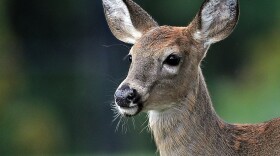
Michaeleen Doucleff
Michaeleen Doucleff, PhD, is a correspondent for NPR's Science Desk. For nearly a decade, she has been reporting for the radio and the web for NPR's global health outlet, . Doucleff focuses on disease outbreaks, cross-cultural parenting, and women and children's health.
In 2014, Doucleff was part of the team that earned a George Foster Peabody award for its coverage of the Ebola outbreak in West Africa. For the series, Doucleff reported on how the epidemic ravaged maternal health and how the virus spreads through the air. In 2019, Doucleff and Senior Producer Jane Greenhalgh produced a story about how Inuit parents teach children to control their anger. That story was the one on NPR.org for the year; altogether readers have spent more than 16 years worth of time reading it.
In 2021, Doucleff published a book, called Hunt, Gather, Parent, stemming from her reporting at NPR. That book became a New York Times bestseller.
Before coming to NPR in 2012, Doucleff was an editor at the journal Cell, where she wrote about the science behind pop culture. Doucleff has a bachelor degree in biology from Caltech, a doctorate in physical chemistry from the University of Berkeley, California, and a master's degree in viticulture and enology from the University of California, Davis.
-
There's serious concern about the effectiveness of vaccines against the omicron strain. But there's also reason to be hopeful — especially for those who've had a booster.
-
The omicron variant of the not been found in the United States yet. Here's what's we known about it, how dangerous it's likely to be, and whether vaccines or new drugs will be effective against it.
-
"This wave seems much faster than the delta wave. And we thought the delta wave was really fast. It's unbelievable," says Juliet Pulliam, the scientist who presented the new analysis at a conference.
-
Scientists in South Africa say preliminary data suggests the omicron coronavirus variant is already widespread across southern Africa — and this happened in a very short period of time.
-
A variant now named omicron, first detected in South Africa, prompted new overseas travel restrictions in Europe and a special World Health Organization meeting on Friday.
-
The World Health Organization deemed it a variant of concern, and the U.S. is banning travel from parts of Africa where it's spreading. Here's what scientists know and what they're trying to learn.
-
One of the surprising aspects of the pandemic is that symptoms can linger months after infection. This syndrome has been called "long COVID," and it's had a profound impact on many people's lives.
-
Some people with COVID-19 have symptoms that last for months - it's known as long COVID. Scientists now think long COVID is likely three different syndromes lumped into one.
-
Scientists have evidence that SARS-CoV-2 is circulating in white-tailed deer in the U.S. They say the findings could essentially dash any hopes of eliminating the virus in the U.S. — and the world.
-
Scientists have evidence that SARS-CoV-2 is widely circulating in wild deer across the United States. Researchers say this could have vast implications for the long-term course of the global pandemic.






